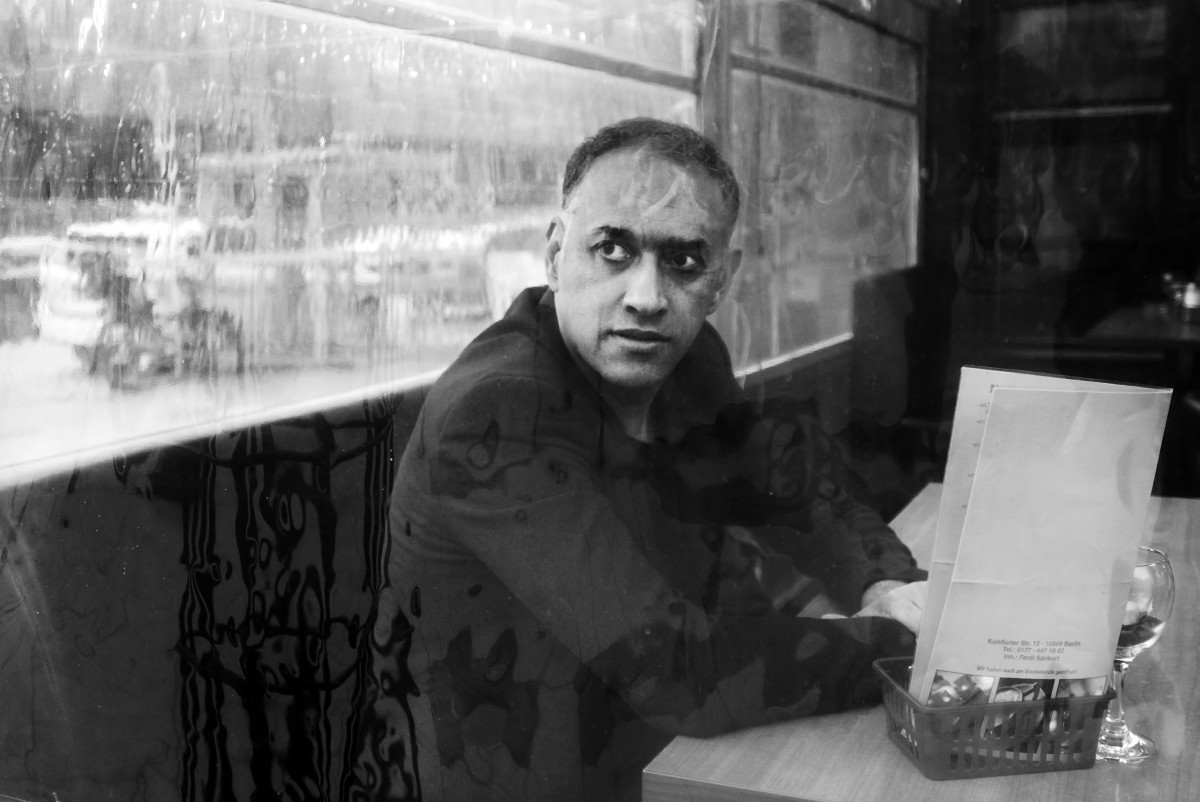ABOUT
“To what extent can the real and figural materiality of an image become an abstraction or, potentially more, a spectrum? The question evokes both aesthetic and ethical problems which, in Kamal Aljafari’s cinema, converge towards a territory as real as it is abstract and phantasmagorical: Palestine. While Aljafari’s cinema stems from the observation of an everyday life that not only coexists within, but inhabits ruin itself, he subsequently transforms these images into trails, echoes, smudges, blurs and, in his most radical recent films, pixels uncapturable by notions of the real. The art of transforming the harrowing materiality of broken walls and destroyed terraces of an invaded territory into a disembodied immateriality is the art of reconfiguring Palestine as a nation, which through moving images ultimately surpasses the forces that imprison and destroy that space. An act of defiance. In Aljafari’s cinema, Palestine becomes a shadow that runs faster than the body from which it emanates.
Amidst fragments of memories and images of a people beset with the insignia of erasure, Kamal Aljafari’s cinema presents chapters of an unfinished story, all at once personal and communal. The Palestinian director and artist, born in the city of Ramla, in 1972, and based in Germany for years, has created a poetic filmography marked by restlessness, devising an elaborate mise-en-scene with different modes of resistance against the systematic attempts to destroy subjects, places, and the symbolic field that attest to a Palestinian existence. Over the course of his almost two-decade career, the filmmaker has undertaken a thorough investigation into the forms and politics of images amidst their power games, about what is seen and what has been made invisible, among material and memorial ruins interpolated in the editing room.
Amidst fragments of memories and images of a people beset with the insignia of erasure, Kamal Aljafari’s cinema presents chapters of an unfinished story, all at once personal and communal. The Palestinian director and artist, born in the city of Ramla, in 1972, and based in Germany for years, has created a poetic filmography marked by restlessness, devising an elaborate mise-en-scene with different modes of resistance against the systematic attempts to destroy subjects, places, and the symbolic field that attest to a Palestinian existence. Over the course of his almost two-decade career, the filmmaker has undertaken a thorough investigation into the forms and politics of images amidst their power games, about what is seen and what has been made invisible, among material and memorial ruins interpolated in the editing room.
His oeuvre, comprising four feature films which make up this year’s Focus Section and three short films, is largely affiliated with the world of documentary, although it rallies a variety of different procedures and formats in dialogue with the visual arts as much as the essay and experimental universe. One of the hallmarks of this process lies in the manipulation of images in an attempt to extrapolate their figurative nature – such as the use of domestic surveillance footage from a street camera in his latest feature film, An Unusual Summer (2020, 80′), whose Brazilian premiere will happen during this year’s Olhar de Cinema. From the interviews in his first short film Visit Iraq (2003, 23′), filmed in Geneva, to the fictional venture in Port of Memory (Minaa Al Zakira, 2009, 62’), which explores the gentrification of the city of Jaffa, through the re-editing of film archives in Recollection (Istiaada, 2015, 70’) as it strives to occupy these forbidden territories, each work updates and reconfigures the filmmaker’s path, which exists alongside his family’s trajectory, creating other times and affective dispositions through sounds and images. As in The Roof (Al Sateh, 2006, 63′), the director’s debut feature film, whose title refers to the never-finished ceiling of his parents’ house, the films in this year’s Focus section reveal a never-ending community building process, a sharing rooted in the typical movements of everyday life – whether a house, a street, or a neighborhood – which unites people and remembrances, both present and absent.”
︎︎︎From Olhar de Cinema
︎︎︎From Olhar de Cinema
RELEASED FILMS
2024 A Fidai Film
2024 UNDR
2022 Paradiso, XXXI, 108
2020 An Unusual Summer
2019 It’s a Long Way From Amphioxus
2015 Recollection
2010 Port of Memory
2007 Balconies
2006 The Roof
2003 Visit Iraq
2024 A Fidai Film
2024 UNDR
2022 Paradiso, XXXI, 108
2020 An Unusual Summer
2019 It’s a Long Way From Amphioxus
2015 Recollection
2010 Port of Memory
2007 Balconies
2006 The Roof
2003 Visit Iraq
IN PRODUCTION
Beirut 1931
Kamal Aljafari Productions is based in Berlin making fiction, non-fiction, and contemporary art. It was created after a decade-long experience of film creation by Kamal Aljafari.
︎︎︎Kamal Aljafari Productions
Beirut 1931
Kamal Aljafari Productions is based in Berlin making fiction, non-fiction, and contemporary art. It was created after a decade-long experience of film creation by Kamal Aljafari.
︎︎︎Kamal Aljafari Productions


